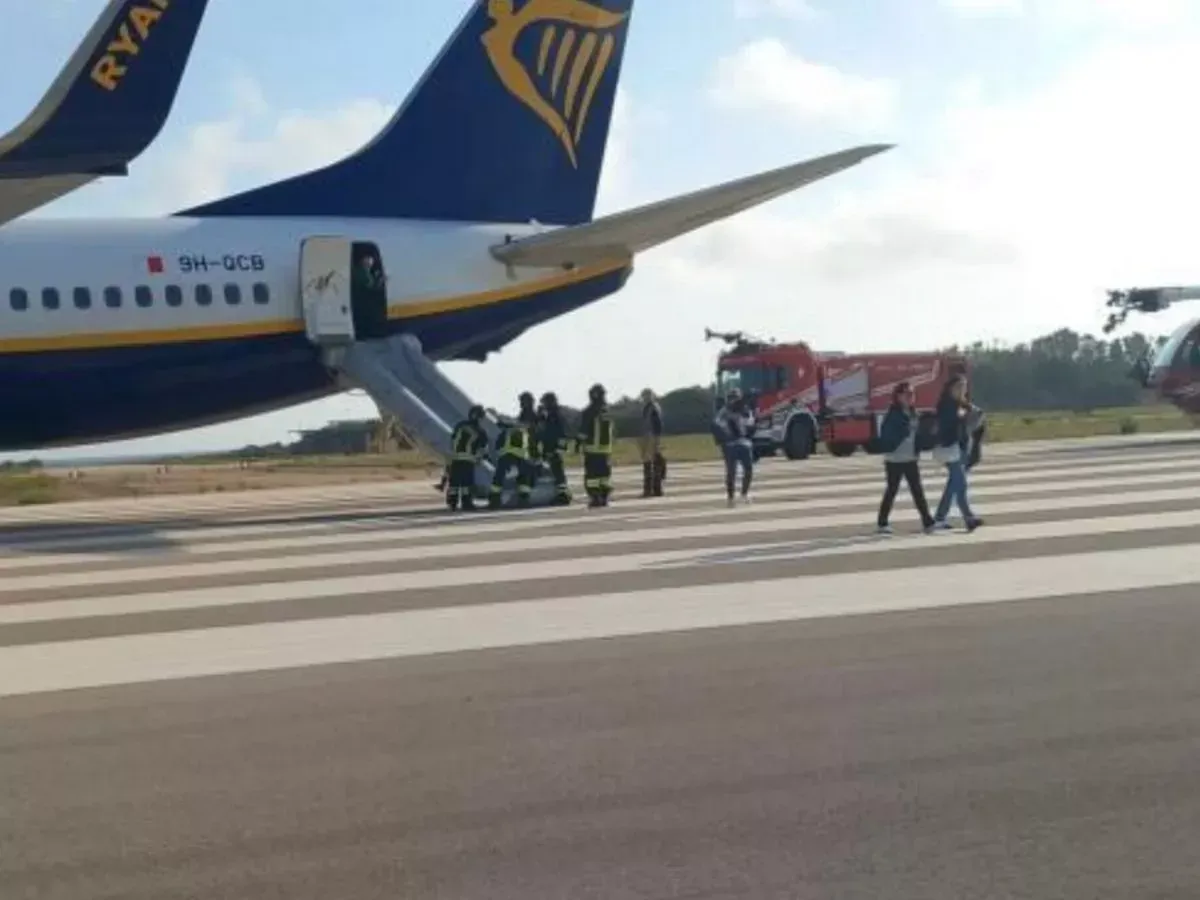On October 3, 2024, a Ryanair flight bound for Turin experienced an unexpected delay at Brindisi Airport in southern Italy. The incident occurred when cabin crew detected fumes outside the aircraft, prompting an immediate evacuation of all 184 passengers.
Ryanair, an Irish ultra-low-cost airline founded in 1984, has grown to become Europe's largest carrier by scheduled passengers flown. The company, which operates more than 400 Boeing 737-800 aircraft, has built its reputation on cost-effective travel options across the continent.
The flight, designated FR8826, was preparing for departure from Brindisi, a city with a rich history as a major port for trade with Greece and the Middle East. Brindisi Airport, also known as Salento Airport, serves as a focus city for Ryanair and plays a crucial role in connecting southern Italy to various European destinations.
In response to the incident, Ryanair issued a statement: "Passengers were disembarked without incident and returned to the terminal by bus." This swift action aligns with the airline's commitment to passenger safety, a priority that has contributed to its growth since its establishment.
The event led to a temporary closure of Brindisi Airport, impacting operations at this important hub. However, Aeroporti di Puglia, the airport operator, confirmed that normal operations resumed by late morning on the same day.
Ryanair's extensive network, which includes flights to over 225 destinations in 37 countries, allows for flexibility in such situations. The airline announced plans to utilize a spare aircraft to transport the affected passengers to Turin later in the day, demonstrating its ability to manage unexpected disruptions.
Turin, the intended destination, is a major city in northern Italy renowned for its automotive industry and historical significance. It notably hosted the 2006 Winter Olympics and is home to the famous Shroud of Turin.
This incident highlights the importance of safety protocols in aviation. Ryanair, under the leadership of Michael O'Leary since 1994, has maintained one of the youngest fleets among European airlines, contributing to its safety record.
While Ryanair has faced controversy for its cost-cutting measures and ancillary revenue generation strategies, the company's efficient handling of this situation reflects its commitment to passenger well-being. The airline's ability to quickly address the issue and provide an alternative solution underscores the benefits of its large fleet and extensive network.
As the first European airline to carry over 100 million passengers in a year (2015), Ryanair's response to this incident demonstrates the operational capabilities that have made it a dominant force in the European aviation market. The company's golden harp logo, reminiscent of Ireland's official emblem, continues to be a familiar sight at airports across Europe, symbolizing its significant presence in the industry.
"Flight FR8826 from Brindisi to Turin was delayed this morning after cabin crew observed fumes on the outside of the aircraft. Passengers were disembarked without incident and returned to the terminal by bus."
This event serves as a reminder of the complex challenges faced by airlines in maintaining safe and efficient operations while managing unexpected situations. It also highlights the importance of Brindisi's strategic location, which has been recognized since Roman times when it served as an important naval base.
As Ryanair continues to navigate the competitive landscape of European aviation, incidents like these test the company's resilience and ability to uphold its commitment to passenger safety and operational efficiency.
